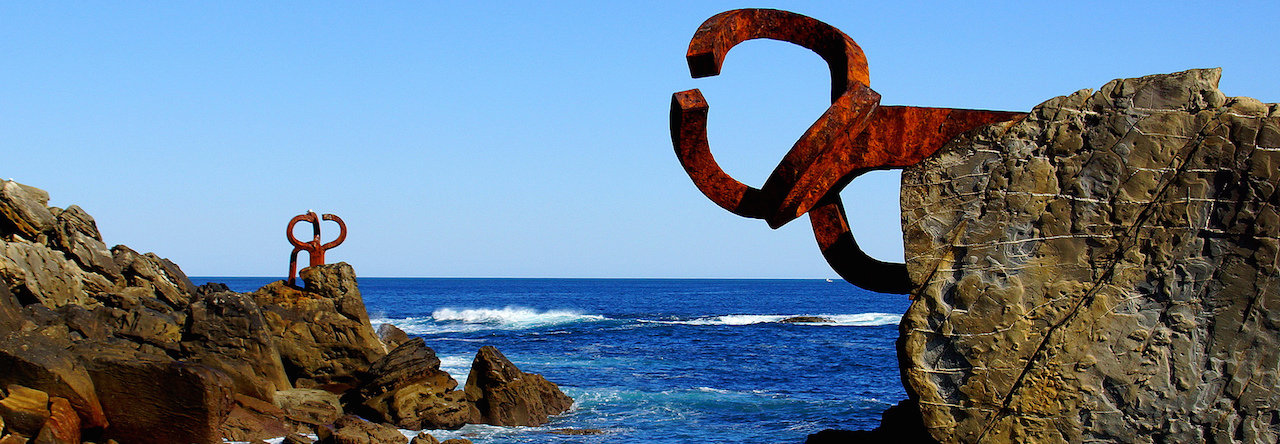Politicians say we do not have to lose our hope. May be it is the only advice they can offer as they do not have any other solution apart from increasing and increasing public spending. Therefore, we can understand why they highlight any minimum change their watchmen observe in the economic environment. They are signs of hope. Last week we receive information on one of them, that several big banks are starting to make profits. It is a positive news, of course, but we are not very sure that it means the arrival of winds of prosperity.
Etiqueta: US_economy
The budget is the main weapon of any politician. When he gets a government post, he makes the big difference because it is able to manage huge resources of money. It does not matter whether the economy is healthy. He always can use the deficit. Nobody is able to demonstrate that finally it will conduct to the bankruptcy. There is no Chapter 11 for Federal Governments.

The Obama Presidency is not enjoying the best support from the Conservative think tanks front. In the middle of the crisis, the are afraid of the arrival of a new and stronger version of the damned Welfare State. If we did not know that in fact, the Welfare State has never left us, we firmly will believe their dramatic appeals against the new wave of communism is coming thanks to Mr Obama.
No, the launch of the Stimulus Plan is generating a big resistence from the Conservative economists. In other post I mentioned the economists’ rebellion leaded by the Cato Institute. Now it is the turn of the Heritage Foundation, whose experts prevent us from the socialist disguised in a Democrat.
With the motto The Left is on the March, this outstanding think tank has started a hard campaign to highlight all the decisions Obama Cabinet makes with the aim of returning to the Welfare State and even further.
“The 1996 welfare reform bill changed the way government treated welfare. But last week the Left reverted back to the liberal welfare state in the “stimulus” bill. Hidden in the bill was a massive increase in welfare spending. While the 1996 reforms gave states more money if they moved people OFF welfare, the new policy gives states more money if more people stay ON welfare”.
The analysts say the Government is going to spend $6,700 for every poor person in the United States. According to them this is not a worthwile investment because it perpetuates the aid and do not motivate people to leaving their bad situation. May be they have to ask themsleves who causes that situation. Not everybody is guilty of being a homeless.
People from the Heritage Foundation argues that the growth of welfare is the worst way to recover economy and family income. They remember the year 1996, when the Clinton Administration implemented another protection package that according to their point of view, did not stimulate at all the entrepreneurship and labour maket.
“It seems some bad ideas never die, and the welfare state is certainly one of them. Before 1996 the government heaped benefits on low-income individuals, crippling them in a cycle of dependency, and providing no incentives for state and local governments to help their citizens get jobs. And with last week’s bill, it seems we are turning back the clock and reinstating these failed policies again”.
But what about the opposite? It does not seem that George W. Bush economic policies have been a big success. And traditionally, Heritage, Cato, AEI and other protoconservative think tanks have the inspirers of the Republicans. The used to claim that. May be now they have forgotten the point.
 China has been the great icon of globalisation. His powerful economic development was a sign of the prosperity of the decade. Every country made business with China and this country was the huge consumero f economic resources. When the financial crisis started, even the Chinese authorities thought they were going to be free from the economic problems and predicted a growth of a 9 percent of GDP for 2009.
China has been the great icon of globalisation. His powerful economic development was a sign of the prosperity of the decade. Every country made business with China and this country was the huge consumero f economic resources. When the financial crisis started, even the Chinese authorities thought they were going to be free from the economic problems and predicted a growth of a 9 percent of GDP for 2009.
Now we have evidence that China is also facing the crisis. He will grow more than any other developed country, but the effects of the crisis are emerging in his figures. Wing Thye Woo, Senior Fellow of the Brookings Institution, explains in China’s Short-term and Long-term Economic Goals and Prospects that
“China’s economic situation in 2009 does not look good. The IMF’s January 2009 projection of growth was 6.7 percent, which was down from its November 2008 projection of 8.5 percent. The February 2009 estimate of the number of jobs lost by migrant workers was 20 million, which was double the estimate of December 2008”.
Several analysts claim that the situation of China will affect to the recovery of the United States, as America needs the financial support of the big country. In fact, if China does not begin structural reforms in his economy, we can see a commercial war between two of the main nations of the Planet. “Some analysts say that the US housing bubble was able to continue only because China prevented the long term interest rate from rising by continually investing its large trade surpluses into Freddie Mac and Fannie Mae Bonds”.
The last thing we need is a war, according to the Brookings analista. We have to reinforce the public diplomacy strategy to persuade Chinese officials about the need to increase the reforms towards a more balanced economic system.
“China’s economy has been like a speeding car for almost 30 years. The high-probability failures that could cause the car to crash in the near future could be classified under three categories (1) hardware failure, (2) software failure, and (3) power supply failure”.
These three scenarios show serious problems like a banking and financial crisis, difficulties in Government with the explosion of social protest due to corruption and inequality, or external limitations to the China’s growth: climate change, a shortfall in energy resources and a commercial war with other countries. The author draws a pessimistic future over the best engine of the global progress.

A scholar of the American Enterprise Institute, Kevin A. Hasset, writes in Enjoy Stimulus Now, Pay Your $14,000 Share Later that it is expected Federal Budget Deficit of 1.7 trillion. Compared to the Bush Era, who championed de deficit course, it means that Mr Obama is going to dramatically increase the public debt to to stimulate the economy. The decision implies each American taxpayer is going to pay a bill of $14,000 in the next years to support the injection of money now to fight against financial crisis.
«That is $1.7 trillion in future taxes. Nobody knows exactly when the tax hike will come. It might even be that we shall try to foist the costs on our children. Still, those planning their financial futures should account for the dramatically higher taxes that will be the result of this year’s policies».
From an individual focus, the economic perspectives are hopeless. People support the big financial support of mortgages and personal loans and they have to pay more taxes to maintain the financial system which is the main responsible of this irrationality.
Kevin Hasset thinks it is a non-acceptable policy and I agree with that. However, it is necessary to point out that American Enterprise Institute has promoted public policies which have contributed to a huge public spending, like oil wars or ubiquous counter-terrorism military strategies. Also, they have asked for the limitation of public control of financial movements. And now, where is the money?
